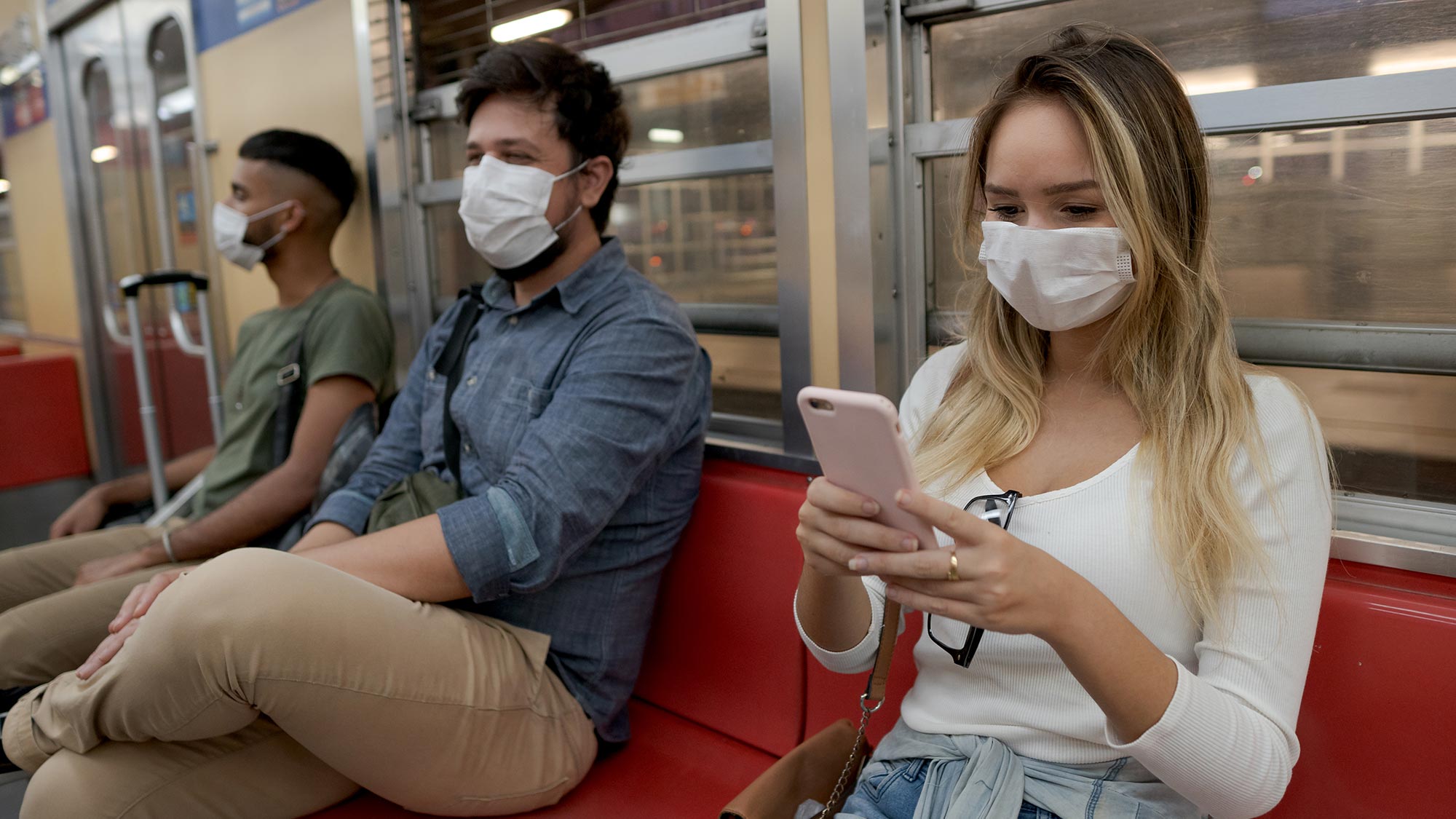
Back on the move: transport and COVID-19
Remaking connections
Though the infrastructure is still in place, the Coronavirus pandemic has disrupted travel within and between countries, cities and towns. Even as lockdowns end, passengers are understandably wary of the health risks of travel. Network operators are having to adapt to restricted user flows and numbers. While we wait for treatments and vaccines to be developed, mass transit systems will require innovative thinking, brave choices and sound policy interventions to get our countries, economies and lives moving again. We can help.
New ways to travel
Airborne pathogens are a major challenge for our high density, close proximity travel systems. We already know that passenger confidence will only return if physical distancing can be implemented in practical ways.
To achieve this, operators will need to start from new baseline assumptions about how people will use and move through transport systems, including when they will travel, how they will travel and in what numbers. We have a selection of services and tools that can help you explore these questions and frame a response:
Analyse new behaviours
Our city-scale agent-based-modelling approach allows us to understand and visualise the implications of changing travelling preferences within a city. These insights can help shape relevant policies and aid economic recovery. At a more localised level, our pedestrian simulation tool MassMotion, can model emerging passenger behaviours, allowing transport clients to understand how their infrastructure or services might be challenged by new physical distancing interventions and assess the changing levels of risk. In addition, our user-centred design team can define ‘no-touch’ pathways throughout the passenger journey – key to rebuilding confidence.
Explore data and analytics
Transport network data is providing us with a rich and detailed picture of changing demand. We can help you to map and navigate this new era, with tools that turn anonymised travel data points into insights about changing preferences and behaviours.
Restarting operations, safely
How do you prepare to re-open after months of suspended operations? It will be challenging to restart services safely, while meeting likely changed demand patterns and many new operational practices to embed. Carrying out these major operational changes requires end-to-end planning and preparation, including everything from placement of physical assets and developing supporting digital services to new staff training and wayfinding.
Our approach to restarting operations tackles six key organisational needs. It:
-
Reveals the new status quo for your organisation
-
Establishes if you can still generate revenue and profit in the new scenario
-
Identifies the implications for your people’s physical and mental wellbeing
-
Designs safe operational conditions for your people and customers/clients
-
Defines policies and interventions that will ensure you stay safe into the future
-
Establishes how your organisation can become more resilient to future risks
Manage risks. Expand operations.
There will likely be a prolonged period in which we have to live alongside the pandemic. Economic recovery will require that we pivot from lockdown to a risk-based approach to operations, with clear responsibilities for operators and travelling public alike. Transport always works as a system, so consistency of approach, with clear policy support will be vital. This applies to national transport networks like buses and metros, as well as international ones like aviation and rail.
Arup’s transport planners and risk managers are already helping clients globally in their approach to national administrations to design joined-up policy responses that will renew public confidence and enable a return to the levels of service our economies depend on.
How risk analysis could help restart the aviation industrySupporting healthy travel
With the pandemic pause in public transport, many more people have chosen to walk and cycle. Given the wider health and environmental benefits of this ‘active travel’, many cities are keen to invest and support it.
Managing assets in difficult times
The pandemic has challenged transport operators’ traditional approach to asset management. As we enter the recovery phase, rethinking asset management processes, tools and the pace of longer-term digitisation is vital on the path towards greater operational resilience and flexibility. We help you to switch your asset management strategy to a fully digital environment, providing greater control and improving business continuity, vital in a crisis. Remote inspection is also possible, using software, sensors and drones, with clear value when your workforce is challenged by social or physical distancing requirements.
Plan future resilience, today
While it might be too soon to predict the future, we can plan and take actions to safeguard our systems against future shocks and stresses of any kind. A high degree of resilience planning should be part of any future investment, so that systems have a greater flexibility to respond to sudden changes in demand, and better prepare for a wider range of risks and stresses.
Discover how we can help your organisation become more resilient
